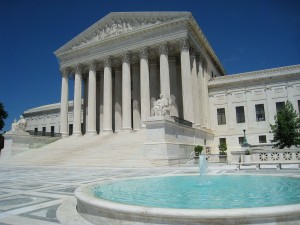Demystifying the Process of Federal Appeals: What You Required to Know
Browsing the complex realm of government appeals can typically look like passing through undiscovered waters for those not familiar with the process. Understanding the nuances of appellate court jurisdiction, the ins and outs of filing a notification of allure, presenting a compelling brief, and making an influential oral argument are crucial components that can considerably influence the outcome of a case. By deciphering the layers of intricacy bordering federal appeals, individuals can get a more clear insight right into the mechanisms that regulate this critical point of the legal system.
Comprehending Federal Appeals Process
Exploring the intricate realm of the federal appeals process unveils a organized and methodical journey via the judicial system. Federal charms function as an important device for evaluating decisions made by lower courts. Comprehending this procedure is necessary for any person involved in lawful proceedings at the federal degree.
The procedure generally begins with a party dissatisfied with a lower court's ruling filing a notice of appeal. This causes a review by a higher court, where a panel of judges examines the lawful arguments offered by both parties. Briefs describing the lawful thinking behind each celebration's setting are submitted, and oral arguments might be heard to make clear intricate issues.
The appellate court's decision is based on a complete assessment of the lower court's proceedings and the debates provided. When the appellate court gets to a decision, it can affirm, turn around, remand, or customize the lower court's judgment, providing clearness and finality to the lawful dispute.
Appellate Court Territory Explained
Appellate court territory refers to the extent of situations that a certain appellate court has the power to choose and review upon. Unlike test courts that hear instances for the first time, appellate courts are restricted to examining choices made by reduced courts.
Appellate courts have jurisdiction over particular kinds of situations, generally those including lawful mistakes, procedural issues, or concerns of regulation instead of factual conflicts. The territory of appellate courts is typically described in statutes and laws that regulate the court system. Understanding appellate court jurisdiction is critical for celebrations associated with the charms process as it determines whether an instance is qualified for evaluation and the level to which the appellate court can interfere in the lower court's choice.
Filing a Notification of Allure
The initial action in starting the government allures procedure entails filing a Notification of Charm with the ideal appellate court. This crucial file officially informs the court and the other celebrations involved in the situation that the appealing party plans to look for a review of the lower court's choice. Submitting a Notice of Charm is a rigorous step-by-step requirement that establishes the appellate procedure in motion.
When preparing the Notice of Allure, it is important to make sure compliance with the particular guidelines and standards of the appropriate appellate court. federal crime attorney. The record needs to typically include info such as the situation name, the lower court's name, the day of the judgment being appealed, and a concise statement suggesting the grounds for the allure

Instruction and Oral Disagreement
In the appellate procedure, presenting created briefs and participating in dental disagreements play critical roles in supporting for the appealing party's setting prior to the appellate court. Briefs are extensive lawful documents that lay out the celebrations' arguments, legal authorities, and evaluation supporting their placements. These composed entries offer the court with a thorough understanding of the facts of the situation, the relevant legislation, and why the appealing event believes the reduced court's decision must be overturned.
Complying with the entry and testimonial of the briefs, oral arguments use the celebrations a possibility to more clarify their positions, attend to any questions the appellate judges may have, and highlight bottom lines from their composed briefs. Dental arguments are a chance for the attorneys to persuade the judges with verbal campaigning for and actions to questions from the bench.
Both the composed briefs and dental disagreements are critical components of the appellate process, enabling parties to provide their case completely and compellingly prior to the appellate court. - federal appeal lawyers
Getting the Appellate Court Choice
The appellate court's choice is generally supplied in a written style and outlines the court's final thoughts on the legal problems offered, the reasoning behind their decision, and this page the judgment provided. The time frame for getting the appellate court's choice can differ, but courts aim to give timely resolutions. Whether the appellate court verifies, turns around, or remands the reduced court's decision, comprehending the effects of the judgment is crucial for all celebrations entailed in the appellate procedure.
Conclusion
In final thought, the government allures process is a complex however vital action in seeking justice. Understanding the appellate court jurisdiction, filing a notification of allure, preparing briefs, and offering oral disagreements are all essential parts of this process. Ultimately, receiving the appellate court decision can offer clearness and resolution to lawful conflicts. It is vital to browse the government allures procedure with persistance and focus to information to attain a fair outcome.
As we advance from recognizing the government allures procedure to exploring the complexities of appellate court jurisdiction, a fundamental facet comes to light pertaining to the authority and restrictions of these greater courts in the legal landscape. Appellate court jurisdiction refers to the extent of instances that a specific appellate court has the power to evaluate and choose upon. Unlike trial courts that listen to instances for the very first time, appellate courts are limited to assessing decisions made by lower courts. Recognizing appellate court jurisdiction is essential for events entailed in the charms procedure as it figures out whether a situation is qualified for evaluation and the extent to which the appellate court can intervene in the reduced court's decision.
